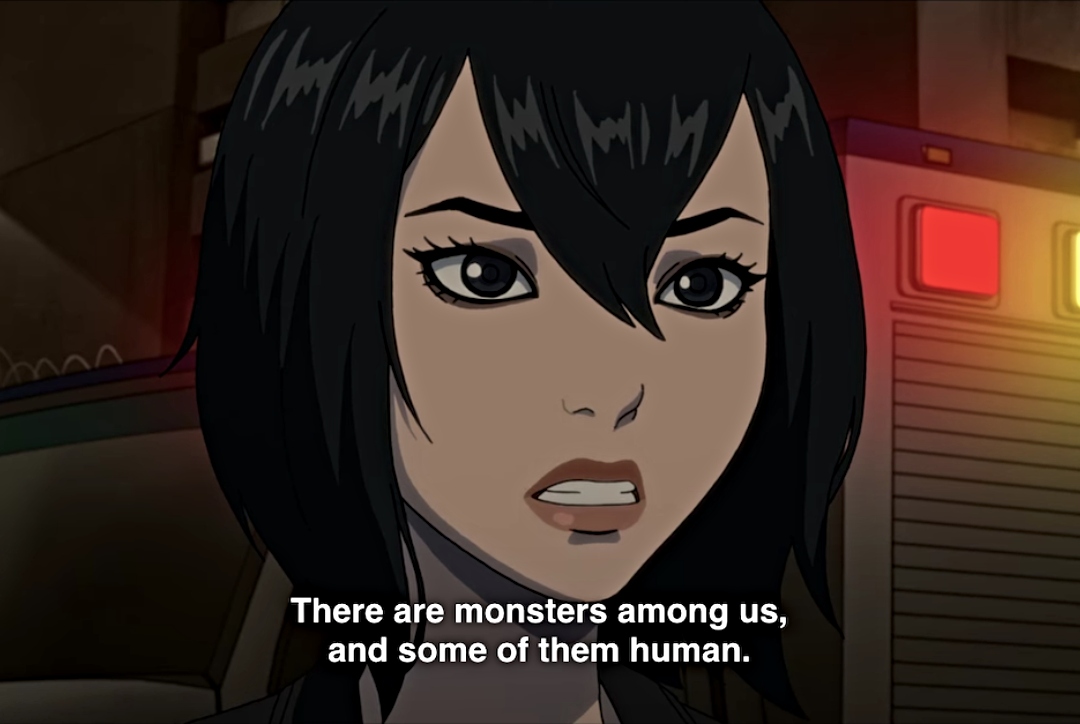Aside from Trese’s coming of age theme, season one is rife with moments that are uniquely Filipino. Warning: potential spoilers up ahead!
The much-awaited international animated series, Trese, which was based on the award-winning comic series of Budjette Tan and Kajo Baldisimo was finally released in Netflix. The show garnered fairly positive responses from both fans and casual viewers, and reported to enter Netflix’ top 10 shows in 19 countries. It was surely a proud moment not only for the creators, but to the Philippines as well.
The show was filled with many familiar visuals from the busy streets, the packed alleyways, the MRT, even the Chocnut scream Pinoy. Apart from the very urban Filipino backdrop, Trese also introduced Philippines’ mythological creatures to the world. Its stunning visuals provided the international audience a glimpse of the Philippines.
Modern time belief in the supernatural
For our ancestors, deities inhabited our daily lives. To avoid misfortunes, pre-colonial Filipinos would ask permission from the spirits nearby before traveling, farming, or hunting within the vicinity. That’s how the phrase “tabi tabi po” was born. Myths open portals to our past and enrich our cultural identity, because these tales connect us to our ancestral roots.
Unfortunately our colonizers persuaded our ancestors to look at them as devils rather than boon-givers, curses, and the embodiment of our history.
The idea of the supernatural was seamlessly incorporated in Trese’s narrative. Unconsciously, we resort into believing supernatural causes to the events that we can’t define whether it’s extremely good or the extremely bad. We can see that in the possessed Mayor Santamaria, as in reality people can be as corrupt as he is.

Ordinary folks would find his remorseless evils-dongs incomprehensible so sometimes it’s easier to believe that there must be a greater evil behind the minds of those who are corrupt than to think they’re still human. Superstitious belief, thus, helps us make sense of the mysteries of the world.
Cultural hybridity
Another thing worth noting in Trese is how different “races” try to live in peace in the same space. The Philippines have seen foreign nationals come and go throughout the centuries. That’s why Filipinos are accustomed to absorbing other cultures and appropriate them to their own, creating what we call cultural hybridity.

Cultural hybridity constitutes the effort to maintain a sense of balance among practices, values, and customs of two or more different cultures. These maintaining of balance comes naturally to us in a form of our hospitality and bayanihan traits.
Filipino concept of family
Among Filipinos, the family is the source of identity, support, and focus of one’s primary duty. In Trese, the driving force of the characters’ actions are out of their love for their family members they lost or they want to protect. For Alexandra, her motivation stems from how she was brought up, the values instilled in her by her parents. Just like a typical Filipino child, she’s loyal to her kin and to fulfilling her parents’ legacy.
Alexandra as protector
One of the most compelling themes of Trese is Alexandra acting as the modern Filipina youth. In one of the show’s crucial moments, she stands before her greatest enemy to date, Datu Talagbusao. In the middle of their fight, he reveals to her secrets from her family that shakes what she believed in all this time. Since her core was tied to her family, her identity was shaken.

Despite this Alexandra responds that she’s not her parents, nor the prophecy, but herself. In the face of evil she acts upon on what she thinks is right and rises above the mistakes of her past. Alexandra Trese represents the young generation of Filipinos who continues to progress, but never forgetting to look back to where they come from. Aside from that, Alexandra is as person who lives up to her name as the “protector” of culture, peace, and future of her fellows.
Related:
Hype Is Real: All The Celeb Filipino Voices in Netflix’s “TRESE”
Here Are More Pinoy Comics That Deserve International Attention







